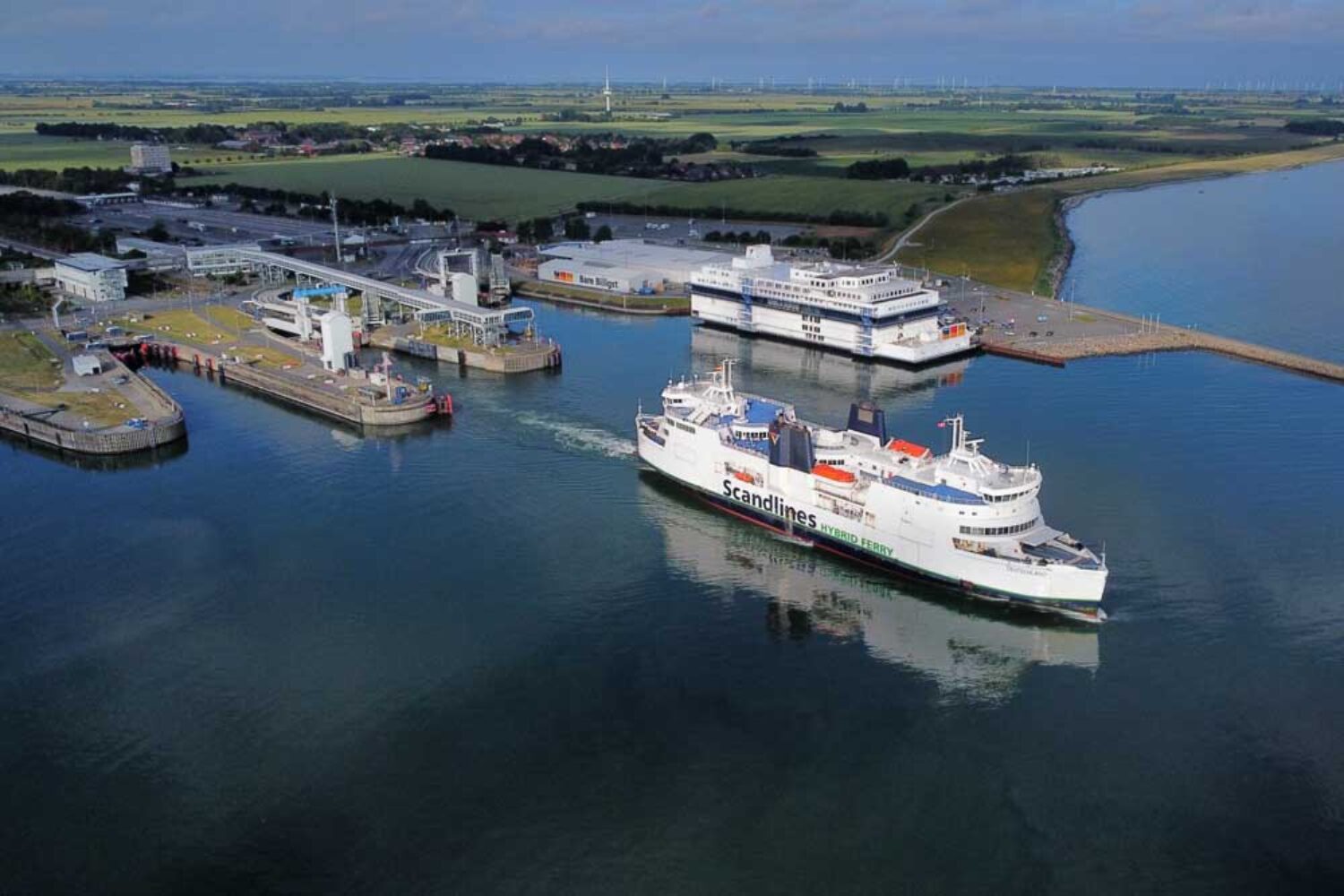The Scandlines shipping company has signed a contract for the delivery of a charging system for the ferry terminal in Puttgarden.
The Norwegian maritime system integrator Norwegian Electric Systems (NES) will supply the shore-based charging system for the ferry terminal in Puttgarden and will be responsible for connecting the system to the power grid of the regional grid operator, Schleswig-Holstein Netz. NES will also supply additional shore power components for the ferry. [ds_preview]
Scandlines’ new “Zero Direct Emissions” ferry, the “Futura”, which is currently under construction in Turkey, will enter service on the Puttgarden-Rødby route in 2024. Back in April 2022, Scandlines signed a contract for the delivery of a shore-based power charging system in Rødby. NES will now also provide the necessary charging infrastructure in the port of Puttgarden, on the German side of the ferry route. The innovative charging system will supply power to both the “Futura” cargo ferry and the hybrid ferries on the route, which will be at least 80% emission-free from 2025.
System to charge batteries in record time
NES is already supplying the energy, automation and navigation systems for Scandlines’ zero-emission cargo ferry. By developing and supplying the charging solution for the “Futura” on both the Danish and German sides, NES is taking responsibility for a large part of the energy solution, from the power grid to the propeller.
The necessary onshore components include a 30 MVA grid transformer, medium and low voltage transformers, switchgear and a control and data acquisition system. Together, these components ensure efficient and reliable operation of the charging system and the ship.
With a battery pack of ten MWh, which corresponds to the total capacity of around 150 electric cars, the ferry’s battery capacity will be one of the largest on a ship in the world. Fast charging is essential for the ferry during loading and unloading of the cars. The charging process is said to take around twelve minutes.













